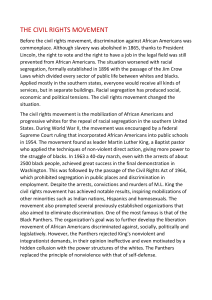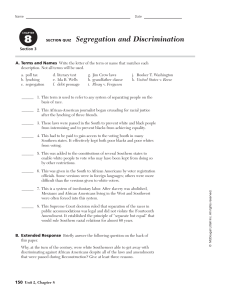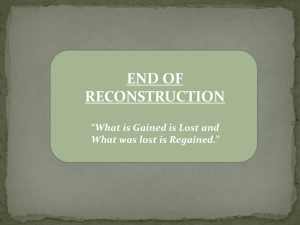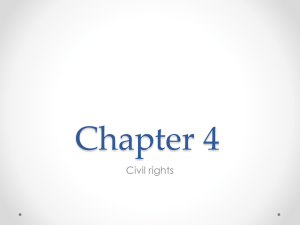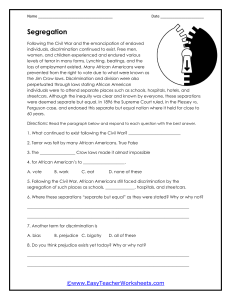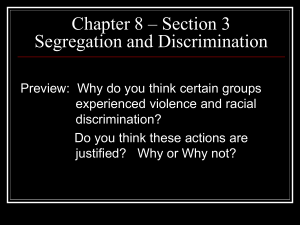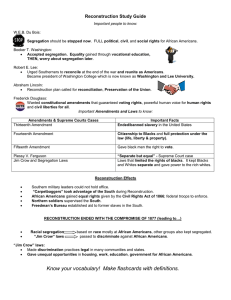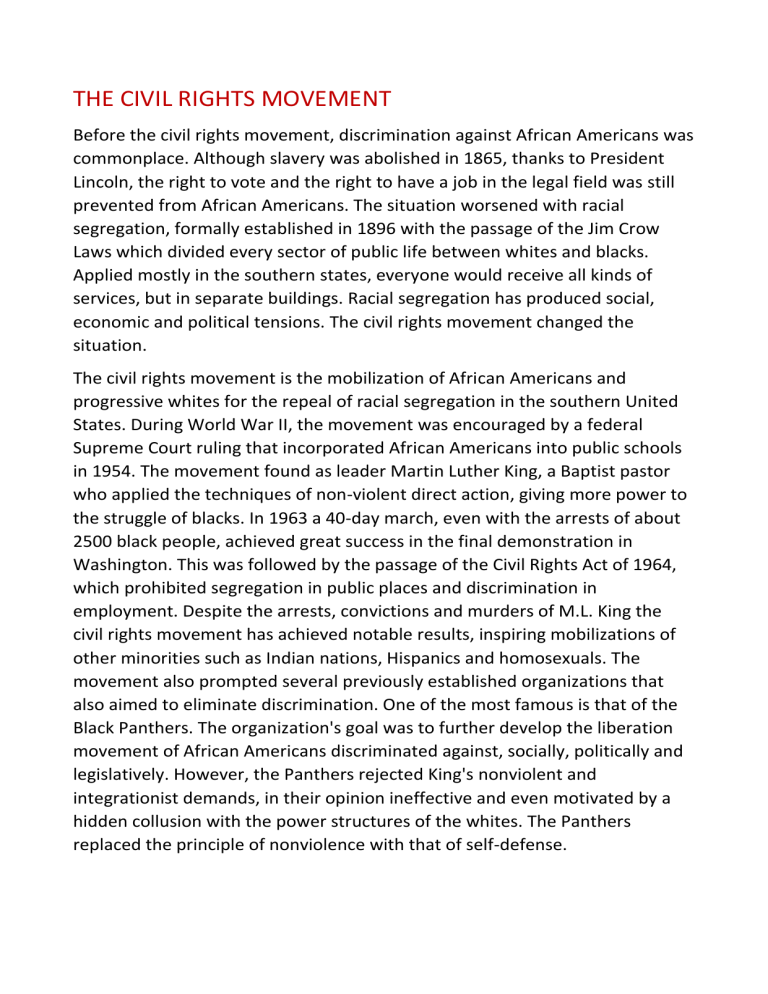
THE CIVIL RIGHTS MOVEMENT Before the civil rights movement, discrimination against African Americans was commonplace. Although slavery was abolished in 1865, thanks to President Lincoln, the right to vote and the right to have a job in the legal field was still prevented from African Americans. The situation worsened with racial segregation, formally established in 1896 with the passage of the Jim Crow Laws which divided every sector of public life between whites and blacks. Applied mostly in the southern states, everyone would receive all kinds of services, but in separate buildings. Racial segregation has produced social, economic and political tensions. The civil rights movement changed the situation. The civil rights movement is the mobilization of African Americans and progressive whites for the repeal of racial segregation in the southern United States. During World War II, the movement was encouraged by a federal Supreme Court ruling that incorporated African Americans into public schools in 1954. The movement found as leader Martin Luther King, a Baptist pastor who applied the techniques of non-violent direct action, giving more power to the struggle of blacks. In 1963 a 40-day march, even with the arrests of about 2500 black people, achieved great success in the final demonstration in Washington. This was followed by the passage of the Civil Rights Act of 1964, which prohibited segregation in public places and discrimination in employment. Despite the arrests, convictions and murders of M.L. King the civil rights movement has achieved notable results, inspiring mobilizations of other minorities such as Indian nations, Hispanics and homosexuals. The movement also prompted several previously established organizations that also aimed to eliminate discrimination. One of the most famous is that of the Black Panthers. The organization's goal was to further develop the liberation movement of African Americans discriminated against, socially, politically and legislatively. However, the Panthers rejected King's nonviolent and integrationist demands, in their opinion ineffective and even motivated by a hidden collusion with the power structures of the whites. The Panthers replaced the principle of nonviolence with that of self-defense.
